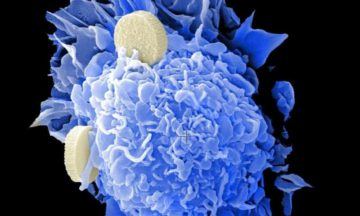Bob Yirka in Phys.Org:
 A team of researchers with biotechnology corporation Genentech Inc., has developed a new way to capture the origins and early adaptive processes that are involved in therapy responses to cancer treatments. In their paper published in the journal Nature Biotechnology, the group describes how their new system can be used to help treat resistant types of cancer.
A team of researchers with biotechnology corporation Genentech Inc., has developed a new way to capture the origins and early adaptive processes that are involved in therapy responses to cancer treatments. In their paper published in the journal Nature Biotechnology, the group describes how their new system can be used to help treat resistant types of cancer.
As the researchers note, the current approach to treating patients with cancer is to give them therapies that their doctor believes are best suited to the kind of cancer they have and then watching to see how well it works—and then modifying the approach if the outcome is less than hoped due to resistance. To improve the process, the team has developed a system that is able to take into account pre-existing features of cancer cells and the changes that might have come about because of them that could lead to treatment resistance. The new system, called TraCe-seq involves analyzing clonal responses to various treatments applied to mutated lung cancer cells—using a single-cell RNA sequencing method. As part of its development, the researchers used EGFR-targeting therapies, which included kinase inhibitors that have been shown to disrupt enzyme binding.
The researchers note that the system is reliant on combinations of different cellular barcoding along with sequential single-cell sequencing. The bar-coding, they further note, allows for using clonal fitness with untreated cells along with those that are exposed to a variety of different therapies.
More here.
